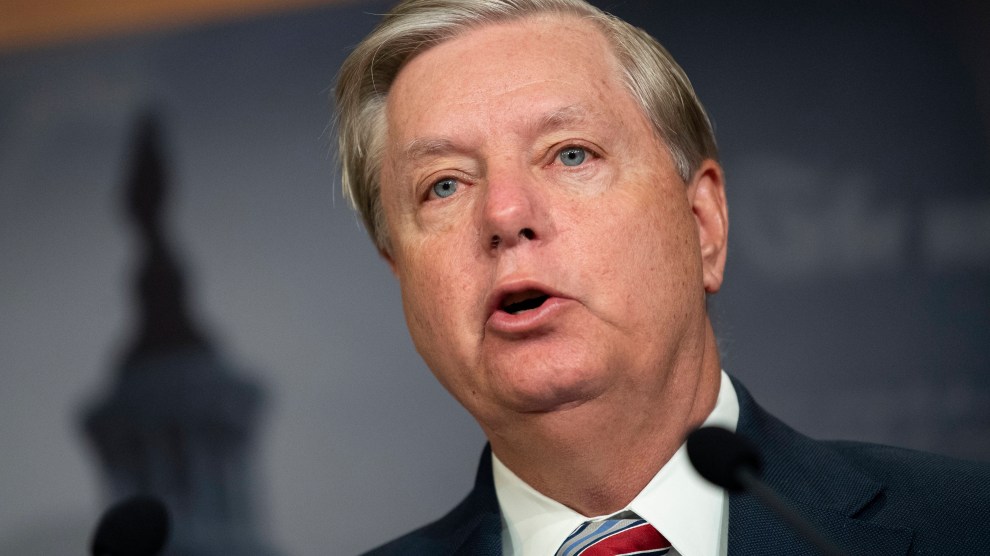
Caroline Brehman/Congressional Quarterly/Zuma
Senate Judiciary Chair Lindsey Graham said during a Fox News appearance on Thursday that he plans to get a ninth Supreme Court justice through the committee process before November 3 so that the court would be able to weigh in on the results of a contested presidential election.
“A 4–4 Supreme Court is not a good deal for America,” Graham said. “Now, we may have litigation about who won the election, but the court will decide, and if the Republicans lose, we will accept that result.” Graham suggests that a deadlocked court would harm America, but the ideological split is already a 5–3 conservative majority. If Graham were to have his way, in the case of a contested election, a third of the people deciding the next president would owe their seats to Donald Trump—not exactly a model of impartiality.
Lindsey Graham: "People wonder about the peaceful transfer of power. I can assure you it will be peaceful. Now we may have litigation about who won the election, but the court will decide, and if Republicans lose, we'll accept that result. But we need a full court." pic.twitter.com/mVBGtMXiBF
— Aaron Rupar (@atrupar) September 24, 2020
In an interview with CNN, Graham refused to acknowledge Democrats’ concerns that a ninth justice could unfairly sway the results of a contested election in favor of Trump:
Graham: “If there’s a court challenge to the election, it will be decided in court. And the loser of the challenge will accept the results.” When asked about Dem concerns they are pushing a SCOTUS nominee now to help tilt outcome of any election dispute: “We need a full court.”
— Manu Raju (@mkraju) September 24, 2020
Lest we forget Graham’s justification for refusing to hold confirmation hearings of Barack Obama’s Supreme Court nominee in 2016: “If there’s a Republican president in 2016 and a vacancy occurs in the last year of the first time, you can say, ‘Lindsey Graham said let’s let the next president, whoever it might me, make that nomination.’ And you could use my words against me, and you’d be absolutely right.” Plus, the Senate’s refusal to hold confirmation hearings for Merrick Garland in 2016 left the Supreme Court with exactly the 4–4 split Graham now says he fears—and an even divide of liberal and conservative judges.















